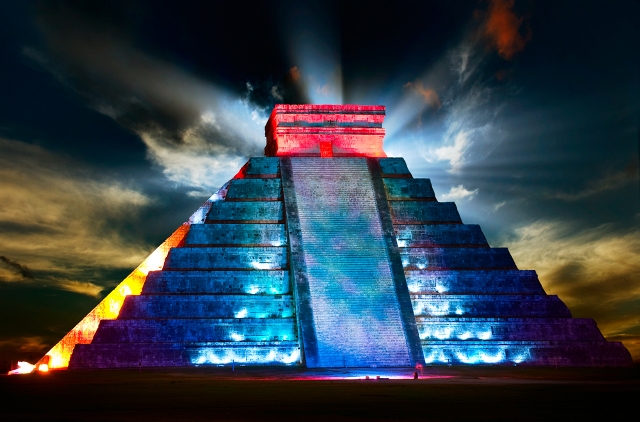A mass burial contains the remains of more than 100 individuals who were sacrificed as part of a series of ancient Maya rituals, a new study finds. Unusually, the remains were all from young boys, and they were buried over a 500-year period.
Archaeologists made the discovery after conducting DNA analyses on 64 of the skeletons, which were found in 1967 inside a chultun, or underground water storage chamber, at the Maya city of Chichén Itzá on Mexico’s Yucatán Peninsula. The researchers revealed their findings in a study published Wednesday (May 12) in the journal Nature.
Radiocarbon dating showed that the cistern was in use between the early seventh century and the mid-12th century, and the genetic analysis revealed that all of the individuals were boys, of whom a quarter were closely related. Researchers also discovered two sets of twins in the mass burial.
“Most of them were between 3 and 6 years old,” lead author Rodrigo Barquera, a postdoctoral researcher at Max Planck Institute for Evolutionary Anthropology in Germany, told Live Science. “Since many of the individuals were related to each other to some extent, that tells us that it’s probable that only specific families would have had access to this burial and that not just anyone could put their kids in there — it was a big honor.”
It is currently unclear how the boys buried there died.
CLICK HERE TO READ THE FULL ARTICLE ON NATURE
TYT Newsroom


